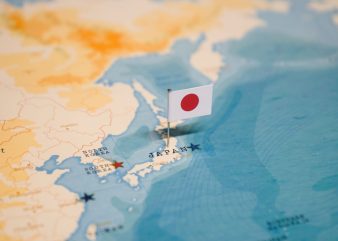
The US-Japan Task Force on the Promotion of Human Rights and International Labour Standards in Supply Chains was launched last year in a bid to protect human and labour rights through trade policy.
The dialogues were held virtually on 5 and 13 February 2024.
In the government dialogue, chaired for the US by acting assistant United States Trade Representative (AUSTR) for Labour Katy Mastman, agencies from both countries’ governments exchanged information on relevant laws, policies, and guidance, including:
- Labour provisions in US trade policy: highlighting the example of the United States-Mexico-Canada Agreement Rapid Response Mechanism
- Implementation of the Uyghur Forced Labor Prevention Act
- Updates on the Xinjiang Supply Chain Business Advisory
- Methodologies for developing the Department of Labor’s lists of goods produced by child labour or forced labour
In the stakeholder dialogue, which was also co-chaired by acting AUSTR Mastman, stakeholders from both countries, including civil society organisations, businesses, and worker organisations, engaged in discussion and information sharing on best practices on corporate due diligence on human rights and internationally recognised labor rights.
Participating organisations from the United States included the Public-Private Alliance for Responsible Minerals Trade, the United States Council for International Business, the AFL-CIO, Verité, and the Responsible Sourcing Network. Participating organisations from Japan included the Japan Business Federation, the Japanese Trade Union Confederation, Action against Child Exploitation, the Global Alliance for Sustainable Supply Chain, and the International Labor Organization Office for Japan.
Japan focused its report primarily on the Guidelines for Respecting Human Rights in Responsible Supply Chains, and its dissemination and awareness-raising efforts, alongside Japan’s engagement with developing countries. Meanwhile, the United States explained how labour-related matters are addressed under the USMCA and provided updates on the implementation of the Uyghur Forced Labor Prevention Act and other initiatives.

US Tariffs are shifting - will you react or anticipate?
Don’t let policy changes catch you off guard. Stay proactive with real-time data and expert analysis.
By GlobalDataTrade statistics suggest Japan’s apparel sector is a promising, dynamic and competitive market for fashion brands and retailers.
Japan has one of the world’s largest apparel consumption markets, with retail sales totaling US$100bn in 2021, behind only the United States ($476bn) and China ($411bn).
Meanwhile, like many other developed economies, most apparel consumed in Japan is imported, making the country a considerable sourcing and market access opportunity for fashion companies and sourcing agents around the globe.



